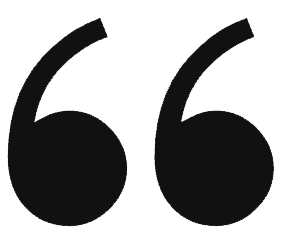

mission statement, and Philosophy
"As a Rehabilitation Assistant, my mission is to provide compassionate, client-centered support to individuals on their path to recovery. By working collaboratively with healthcare professionals, I aim to help patients regain independence, mobility, and overall well-being. Through dedication, empathy, and evidence-based practices, I strive to make a positive impact in the lives of those I serve, fostering an environment of encouragement, respect, and holistic healing."
Sean Lee
Enthusiastic
I show a strong interest and excitement in activities or subjects, often displaying a high level of energy.
Proactive
I take initiative and are often self-motivated, seeking ways to achieve their goals without waiting for direction.
Observant
I am usually very perceptive, noticing details that others might overlook, which helps them make informed decisions.
- "I will sustain my enthusiasm moving forward by collaborating my abilities and communicate with team members."
- "I envision myself as a proactive and initiative-driven Rehabilitation Assistant, dedicated to taking the lead in fostering positive change for my clients"
- "By cultivating my observational skills, I aim to identify subtle changes in their condition, emotions, and responses to treatment."
- Praxis
- Competencies
- Hollstic
- Multidisciplinary
- Value
- Goals
- Respect
- Positive
- Caring
- Life course apporach
- Endurance
- Interventions
- Clinical reasoning
- Sustainablity .
These terms represents my philosophy toward Rehabilitation assistant.
If I must put Rehabilitation assistant in one adverb, I would put:
" What goes around, comes around."
Upcoming next:
- Competencies and skills
1) Communication Skills: Ability to clearly and effectively communicate with patients, families, and healthcare professionals to provide support and information
Examples:
2) Empathy: Understanding and being sensitive to patients’ emotions and challenges, fostering trust and rapport.
Examples:
3) Observational Skills: Noticing changes in a patient’s condition, behavior, and responses to treatment to adjust care plans accordingly.
Examples:
4) Teamwork: Collaborating effectively with multidisciplinary teams to provide comprehensive care.
Examples:
5) Problem-Solving: Developing creative solutions to overcome barriers in patient care and rehabilitation processes.
Examples:
6) Patience: Demonstrating the ability to remain calm and supportive, especially when patients face difficulties or frustrations.
Examples:
7) Time Management: Effectively managing time to provide timely care and support for multiple patients.
Examples:
8) Adaptability: Adjusting to changing circumstances and patient needs in a dynamic healthcare environment.
Examples:
9) Physical Fitness: Maintaining personal physical health and stamina to assist patients safely during therapy sessions.
Examples:
10) Technical Skills: Familiarity with rehabilitation equipment, therapeutic exercises, and modalities to support treatment plans.
Examples:
" Very receptive and keen to people.
- Sean Lee (OT, Richmond mental health team)
" I love your smile and you being receptive. Enthusiastic and passionate.
- Bev Parno (PT, RCH)
"Sean is initiative and great at asking questions. He does take the constructive feedback very well. Build good rapport with client and very personable.
- Eden Lin, Sean Lee (OT, Richmond mental health team)
" You are a lovely person with a very big heart and everyone is so glad we got to know you and share this experience with you. We will be your cheerleader as you continue! "
- Sarah (Peer of RADP 2022 grad)



